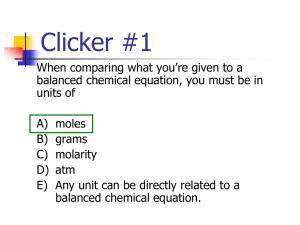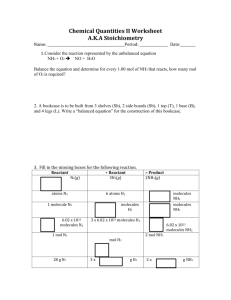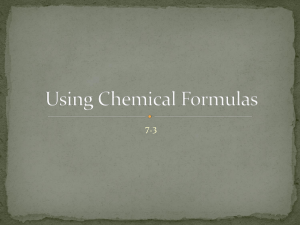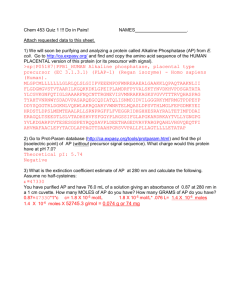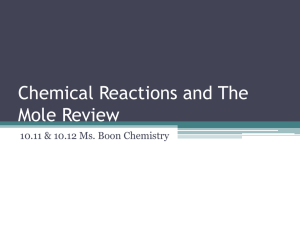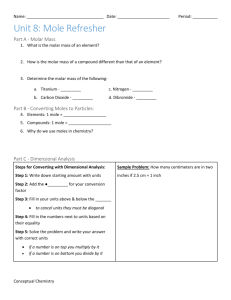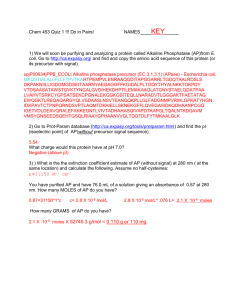Student Worksheet: Introduction to Stoichiometric Calculations
advertisement
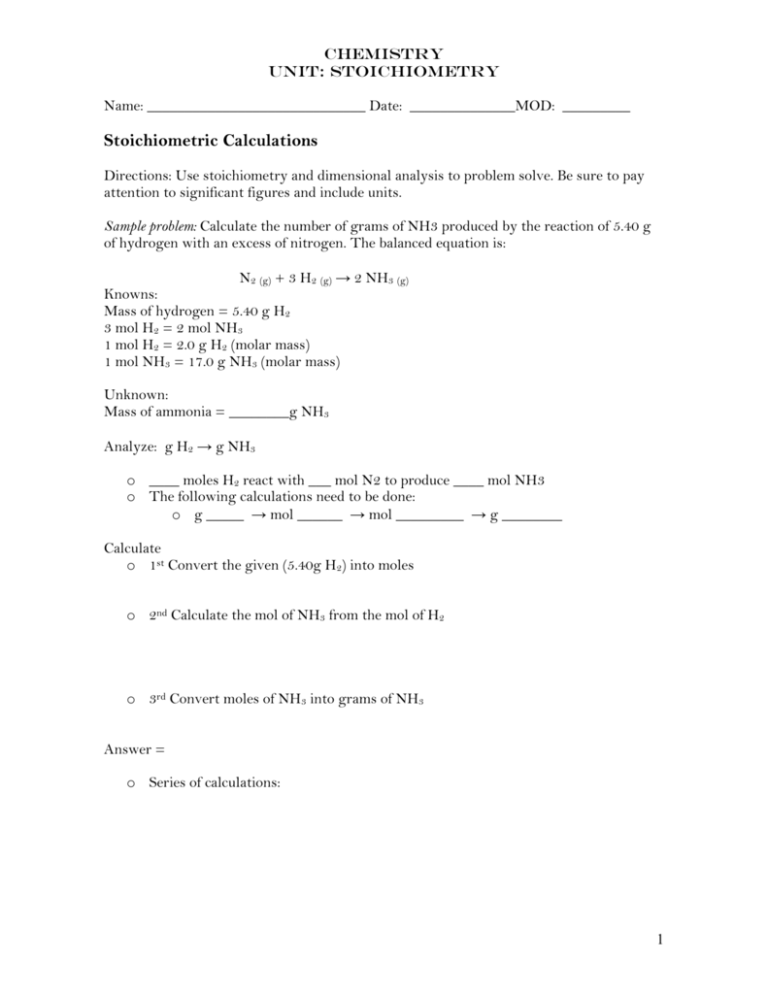
Chemistry Unit: Stoichiometry Name: _____________________________ Date: ______________MOD: _________ Stoichiometric Calculations Directions: Use stoichiometry and dimensional analysis to problem solve. Be sure to pay attention to significant figures and include units. Sample problem: Calculate the number of grams of NH3 produced by the reaction of 5.40 g of hydrogen with an excess of nitrogen. The balanced equation is: N2 (g) + 3 H2 (g) → 2 NH3 (g) Knowns: Mass of hydrogen = 5.40 g H2 3 mol H2 = 2 mol NH3 1 mol H2 = 2.0 g H2 (molar mass) 1 mol NH3 = 17.0 g NH3 (molar mass) Unknown: Mass of ammonia = ________g NH3 Analyze: g H2 → g NH3 o ____ moles H2 react with ___ mol N2 to produce ____ mol NH3 o The following calculations need to be done: o g _____ → mol ______ → mol _________ → g ________ Calculate o 1st Convert the given (5.40g H2) into moles o 2nd Calculate the mol of NH3 from the mol of H2 o 3rd Convert moles of NH3 into grams of NH3 Answer = o Series of calculations: 1 Chemistry Unit: Stoichiometry 1. The complete combustion of ethanol produces carbon dioxide and water according to the following chemical equation: C2H5OH(l) + 3O2(g) → 2CO2(g) + 3H2O(l) a) How many moles of oxygen are necessary to produce 18.0 moles of carbon dioxide? b) How many grams of carbon dioxide are produced when 1.2 moles of water are produced? 2. Iron(III) oxide can be decomposed in the presence of hydrogen gas and heat to produce free iron and water according to the following chemical equation: Fe2O3(s) + 3H2(g) → 2Fe(s) + 3H2O(g) a) How many moles of hydrogen gas are needed to produce 90.0 grams of iron? b) What is the mass of iron produced when 450 grams of iron(III) oxide decomposes? 3. Dintirogen pentoxide is formed from the combination of nitric acid and oxygen according to the following chemical equation: 4NO(g) + 3O2(g) → 2N2O5(g) a) How many liters of oxygen are consumed when 18.0 moles of nitric acid are available for the reaction? b) What is the mass of dinitrogen pentoxide produced from 7.00 moles of oxygen? 2
